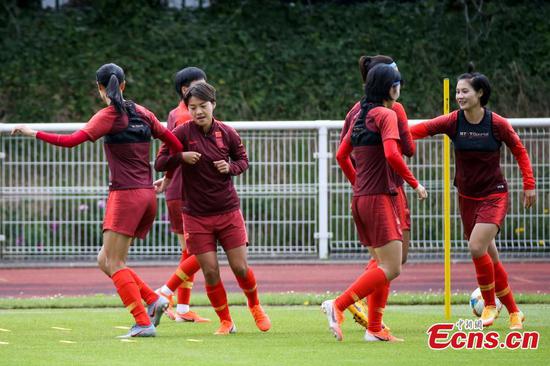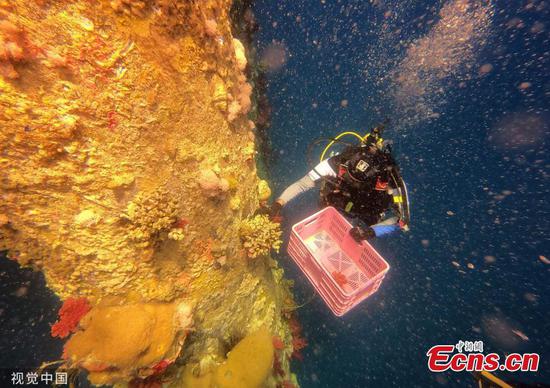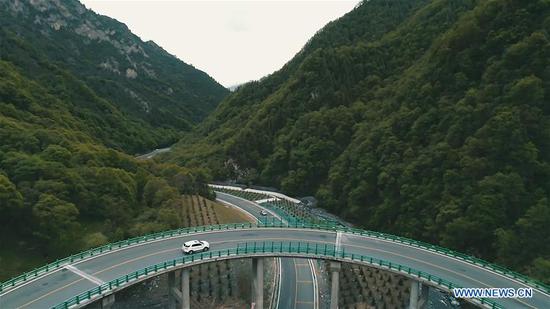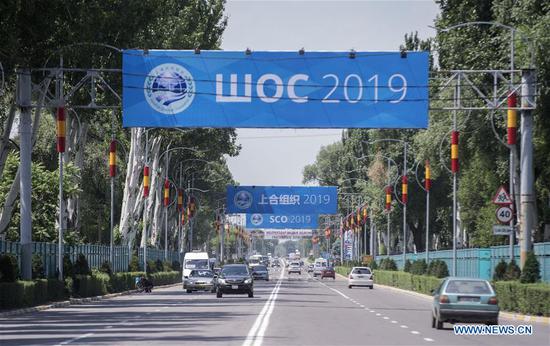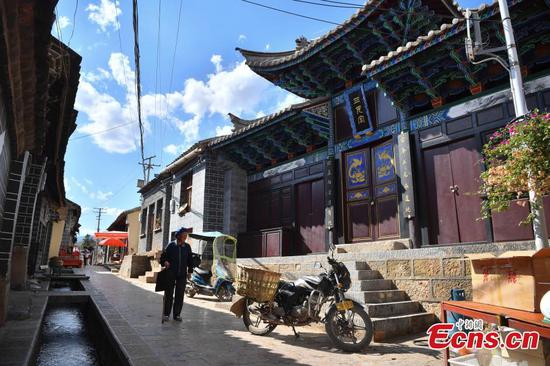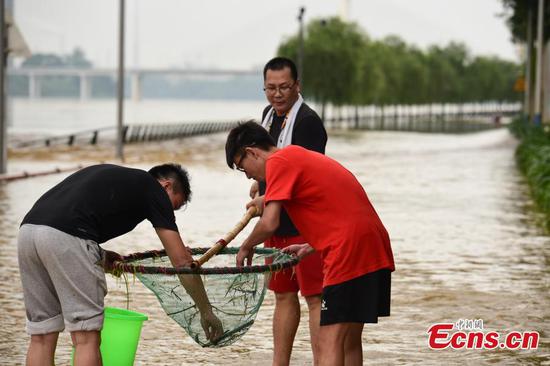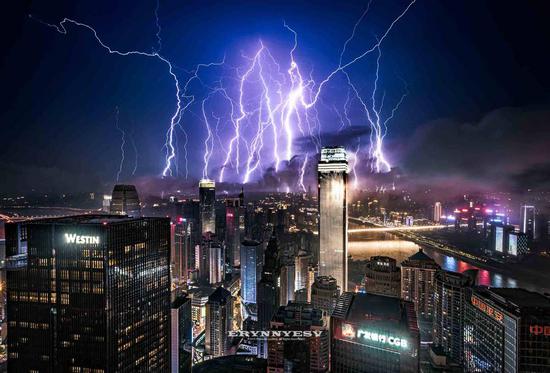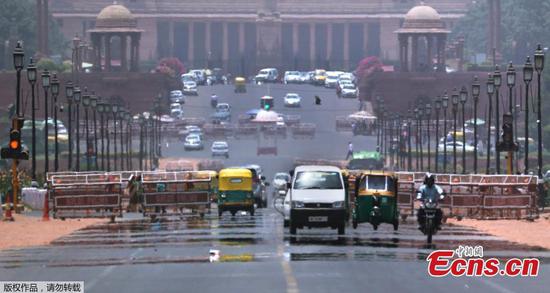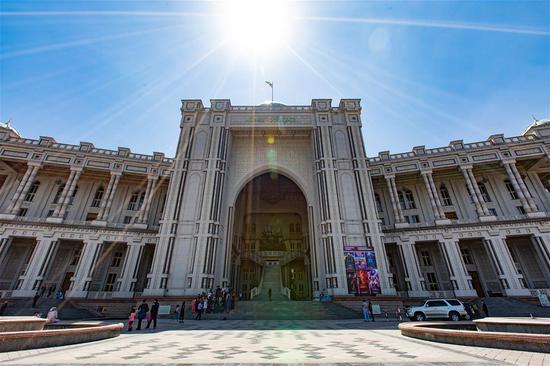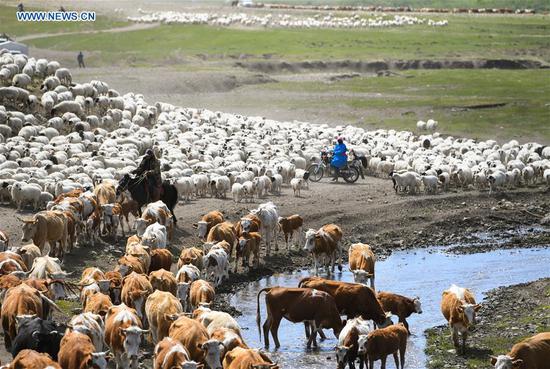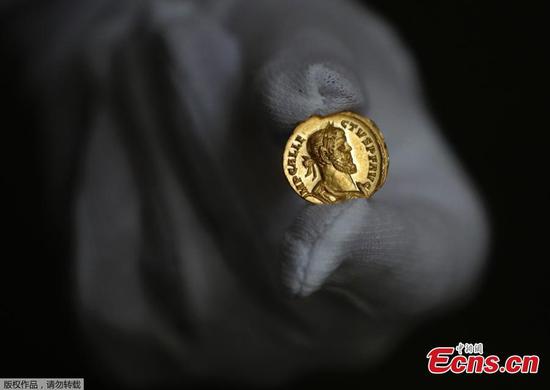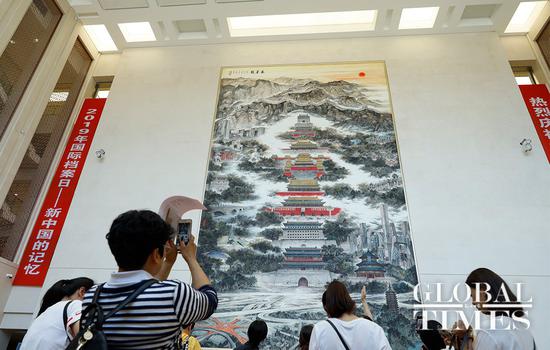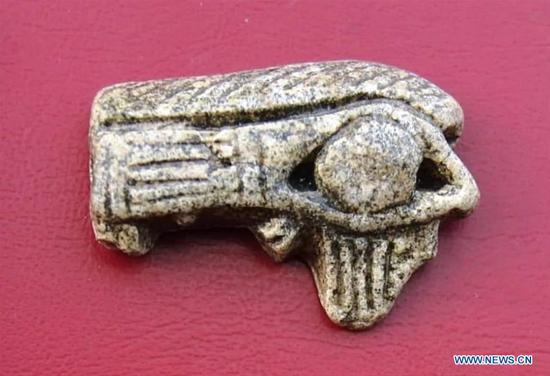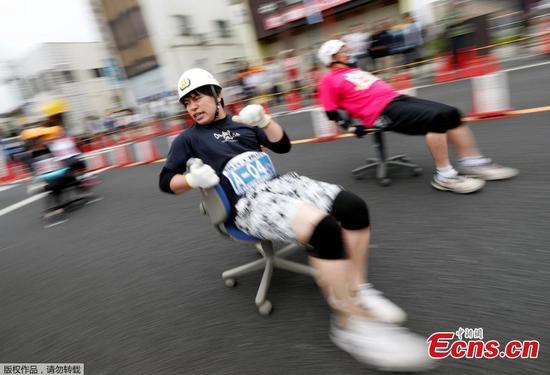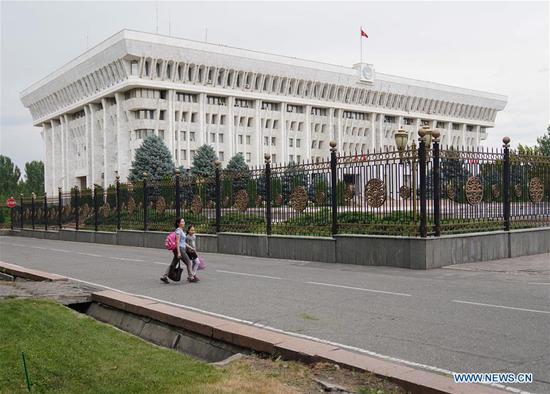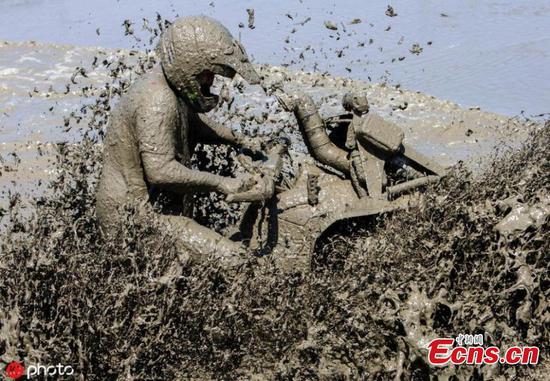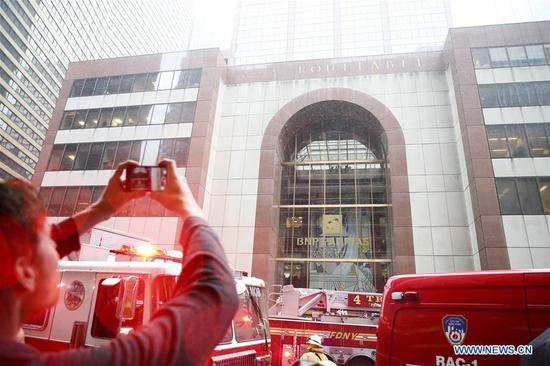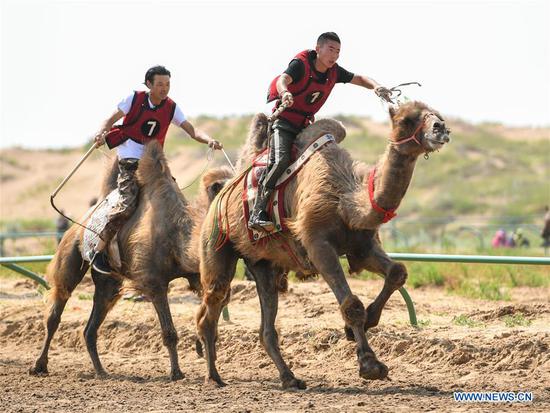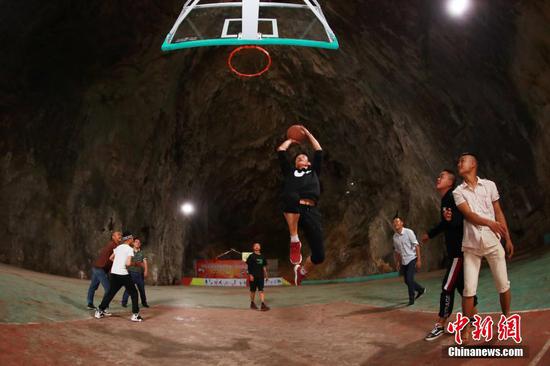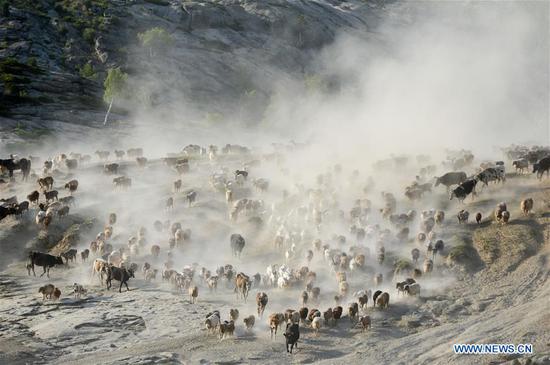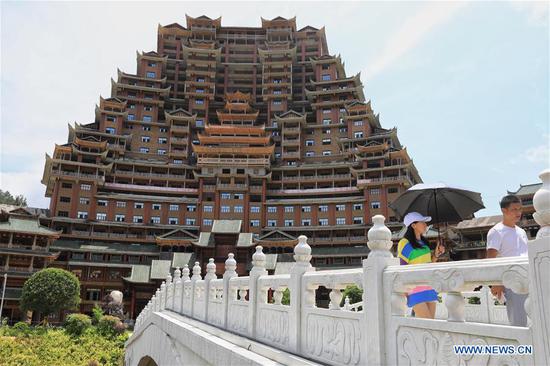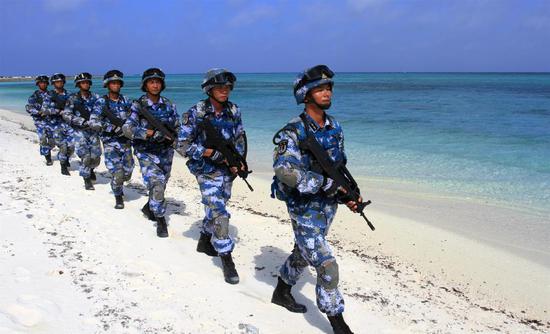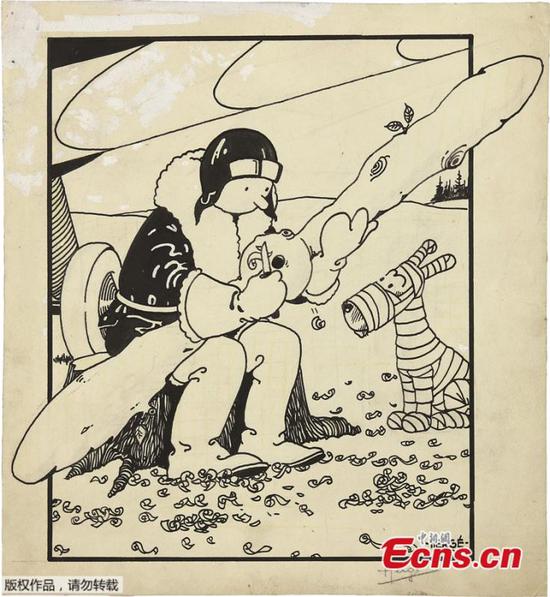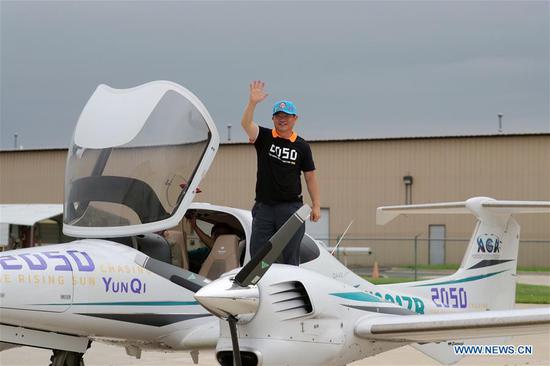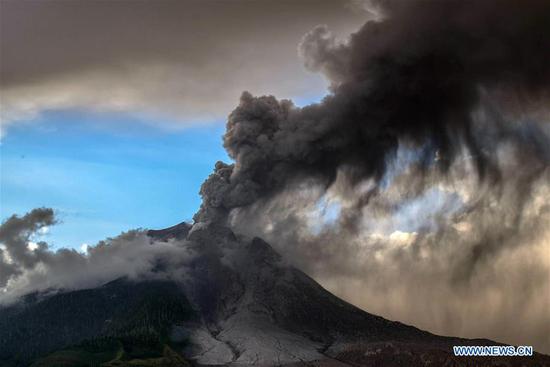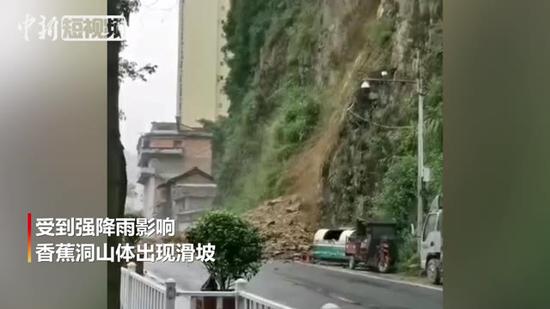Nuclear issue still deadlocked one year after Kim-Trump summit in Singapore
The luxurious Capella Hotel on the resort Island of Sentosa in Singapore is now a popular spot for tourists to pose for photos.
A year ago, on June 12, the hotel welcomed two of its most famous guests. U.S. President Donald Trump and DPRK top leader Kim Jong-un, stood face to face for the first time at an unprecedented summit in the Southeast Asian country. A historic occasion to say the least: It was the first time a sitting president from the United States had met the top leader of the Democratic People's Republic of Korea.
A 13-second handshake, five hours of negotiations, and a four-point joint statement marked the two leaders' meeting.
Even though the four-point Singapore Declaration that came out of the meeting was light on specifics, opting instead for four general and vague commitments, most of them remained unrealized a year after.
The points were "to establish 'new bilateral relations' for peace and prosperity; to build a 'lasting and stable peace regime on the Korean Peninsula'; to work toward complete denuclearization of the Korean Peninsula; to recover and repatriate the remains of soldiers killed during the 1950-53 Korean War."
Throughout the talks, as well as in behind-the-scenes negotiations, neither side announced next steps toward denuclearization, easing sanctions, or establishing the so-called "peace regime" for the peninsula.
Some analysts said that last year's summit was the peak of bilateral relations between Pyongyang and Washington. The photo of Trump and Kim in Singapore, like the souvenir many tourists must take from there, served only to commemorate the symbolic trip.
And in this February, the second summit between the two leaders in Vietnam's capital Hanoi fell apart. While Trump said the breakdown was due to Kim's failure to offer steps toward nuclear disarmament in exchange for lifting international sanctions, Pyongyang accused Washington of acting in "bad faith" and gave it until the end of the year to change its approach.
The process remains deadlocked, and analysts said the future of the peninsula is unclear.
Although both sides said they are still open to a third summit, Wang Junsheng, an international relations expert at the National Institute of International Strategy of the Chinese Academy of Social Sciences, said the key to resolving the deadlock is not to hold more "diplomatic shows".
"The two sides have experienced a long period of mistrust. More importantly, they should first work out and make sure both are on the same page regarding the concept of denuclearization," Wang said.
Last week, U.S. officials said they have proposed working-level talks to Pyongyang but are not planning another summit until a deal is hammered out.
And since Trump has repeatedly said he is in "no rush" and appears content with the status quo, analysts said it's time for more international facilitators to step in.
Lee Jung-nam, a professor at the Asiatic Research Institute at Korea University in Seoul, said few people predicted failure in Hanoi, but it was not a "surprise".
"Although it is a common sense in Seoul that the improvement of DPRK-U.S. relations is the prerequisite for inter-Korean interaction, neighboring countries including the Republic of Korea, China and Russia, as well as other international third parties, should all make contributions to peace on the peninsula and encourage Pyongyang and Washington to have more dialogues," she said.
It is hard to predict what Pyongyang and Washington will do next. Liang Lichang, a researcher from Chinese think tank Charhar Institute, said the best case outcome would be the U.S. resuming slow and steady outreach to the DPRK to persuade Pyongyang to take tangible steps toward denuclearization.
"This one-year anniversary was only the beginning," Liang said. "Although the year has seen repeated rounds of provocations by both countries, we still see a big step forward as they finally sit down and searching for the peaceful and diplomatic approach to resolve the nuclear issues," he added.









